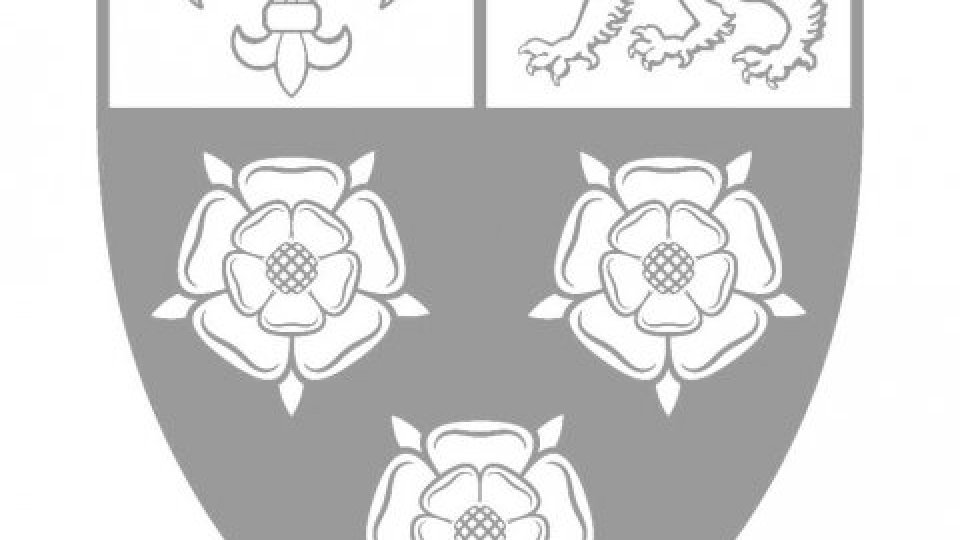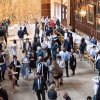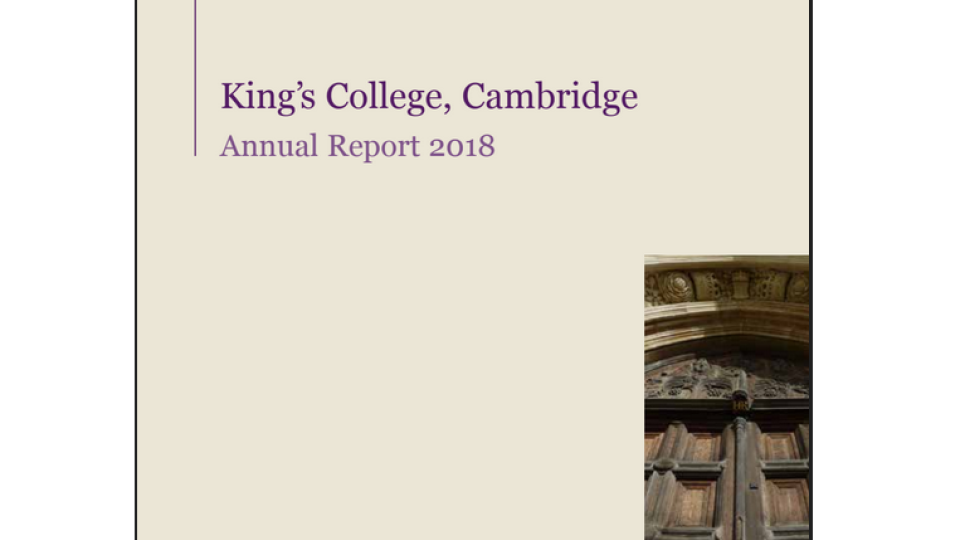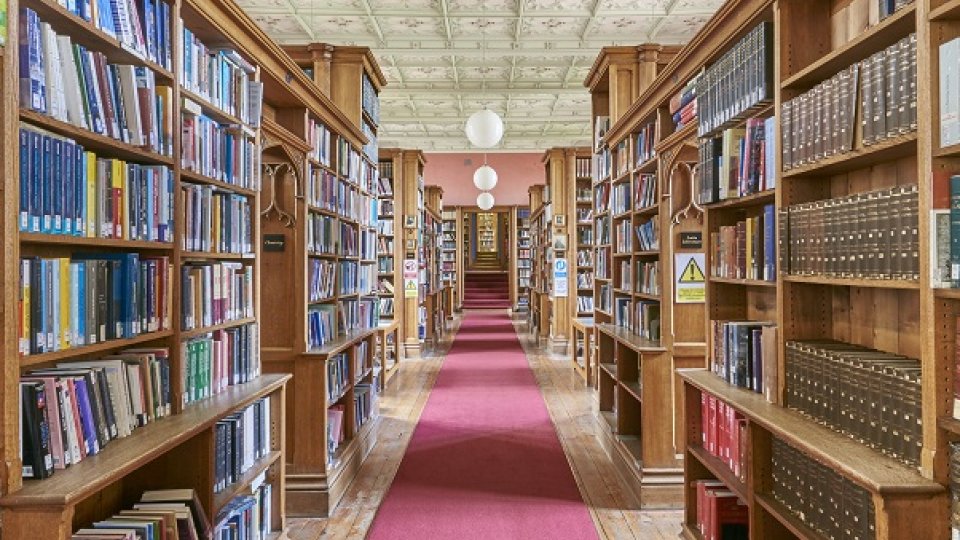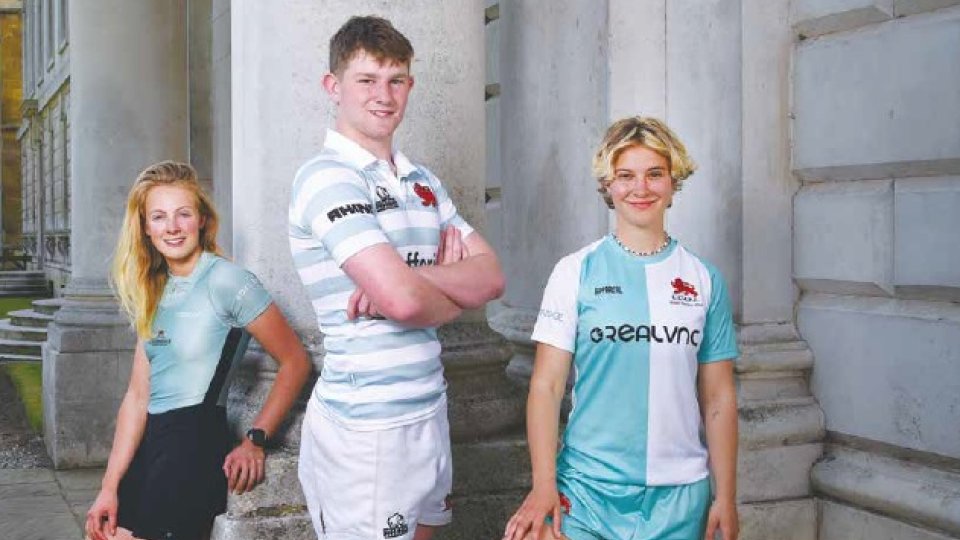The seven classes of information listed below form the model publication scheme (MPS) devised by the Information Commissioner’s Office for use by Higher Education Institutions from September 2013. This webpage comprises the King’s College, Cambridge publication scheme according to this model. Numbers in the MPS refer to the relevant sections in the Guide to Information (GTI), where further information might be available. The GTI can be downloaded here.
For schemes pertaining to the College’s subsidiary companies, or for general information about the publication schemes for the College and its subsidiary companies (such as how to get copies of the information listed below, how our fees are charged, and complaints procedures) go to the general webpage about our Publication Schemes.
If the information you seek is not listed in the publication scheme, you should still ask about it. See section 5 of the general webpage about our Publication Schemes.
Main categories
The main classes of information in the MPS are:
- Who we are and what we do
- What we spend and how we spend it
- What our priorities are and how we are doing
- How we make decisions
- Our policies and procedures
- Lists and registers
- The services we offer
Who We Are
King’s College, formally ‘The Provost and Scholars of the King’s College of Our Lady and St Nicholas in Cambridge’, is one of the Colleges of Cambridge University. We are a charitable corporate body established in 1441 by Royal Charter, and governed by statutes and ordinances. The statutes stipulate that we exist as a place of education, religion, learning and research. We have been a registered charity since 2010, number 1139422. See the GTI§1.1 for publications about the legal status of the College.
How We Are Organised
We have approximately 120 Fellows, 800 students, and 300 staff. All the Fellows, along with four students and the Provost (Head of House), make up the Governing Body which is the sovereign decision-making body in the College and meets several times per year.
The day-to-day running of the College is handled by the College Council, which meets fortnightly during Full Term. The minutes of the Council and Governing Body are published on the minutes web page after they have been approved. Various other committees meet routinely and advise the Council. Their minutes are made available as papers to the Council. See the GTI §1.2 for published information about the Council and Governing Body, and GTI §1.3 for more information about the organization of the College.
The Council appoints educational and administrative Officers, as set out in Statutes and Ordinances. The names and contact details of the current officeholders are listed on the College Officers page below.
- The Provost, Head of House for the College
- The Vice-Provost
- The First Bursar
- The Domus Bursar
- The Senior Tutor
- The Dean of Chapel
- The Director of Development
-
The Director of Music
What We Do
Education and Student Welfare
Cambridge University delivers lectures, administers examinations, and grants degrees. Information about the University’s educational remit is available from their website, the link to which is available in the tab below. The academic newsletter of the University is the Cambridge University Reporter.
The University education of each King’s College undergraduate student is supplemented by supervisions overseen by the Director of Studies for that student’s particular degree. Supervisions to King’s students are normally given by Fellows of King’s College and sometimes by Fellows of other Colleges, who normally hold University teaching and/or research posts in addition to their College Fellowships.
Graduate students are admitted to the University through their Departments/Faculties and the University’s Board of Graduate Studies, in conjunction with the Graduate Tutors in the Colleges. Graduate students of the University are given a College affiliation, sometimes live in College accommodation and can make use of many College facilities, but they do not receive supervisions in College. The welfare of graduate students is managed through the Tutorial Office by the Graduate Tutor.
Detailed information about how the College fits into the University is available from the University’s website about how the University and Colleges work. The University Council has some jurisdiction in College academic affairs.
Although the University sets exams and grants degrees, each College is responsible for admission of its graduate and undergraduate students. Information of interest to prospective King’s students can be found in the Study at King's webpages. This includes information about student accommodation and financial support. The undergraduate and graduate student unions publish their own information.
The undergraduate student handbook has further information. It is available on the student intranet or you can write to the foi officer.
The Chapel
The religious life of the College is focussed mainly on the Chapel. Statutes require daily services be held during Term. They are held in accordance with the rites of the Church of England. The Dean is responsible to the Governing Body for the provision of Chapel services and the Chaplain provides for the pastoral care and spiritual welfare of all students irrespective of denomination or faith community. Information about the Chapel including history, access and opening hours, and times of scheduled services and concerts held within it is available on the chapel webpages, in Visit King's and under Events.
The Library
The College Library facilitates learning by providing study space and books for students. Hundreds of new books are bought each year on the advice of the Directors of Studies. The online catalogue lists over 92,000 books, and annual loans total about 22,000. We have particularly strong resources for the study of music and the study of global warming.
Through its archival collections the Library provides a resource used by about 200 scholars a year from the College and University, as well as the rest of the world. We have particularly strong resources for the study of early 20th century economics, literature and fine arts, and for local and family history of the properties endowed to the College when it was founded. See the Archive Centre webpages for information about the Archives including access.
Research
Many of the College’s Fellows conduct research within their University Departments. The College supports research through stipendiary and non-stipendiary Fellowships, and by making small grants available to Fellows to support research activities.
The College also runs international conferences, workshops and seminars organized by the Research Managers or by individual Fellows, and collaborates with Harvard University and Magdalene College through the Centre for History and Economics to facilitate research and conferences in those areas.
See the Research webpage for details of the College’s research programme.
Where our money comes from
The College funds its activities from academic fees, student ‘room and board’ charges, the income from its conferences and catering business, its invested endowments, and from donations and legacies. The Development Office raise money from non-resident members, individuals from outside the College, and grant-making trusts.
How we spend it
Once the annual accounts have been audited, the College publishes them on the accounts page. See the GTI§2 for more published financial information including pension plans, budget and audit information.
The priorities of education, religion, learning, and research are considered of equal importance to the College. The College’s Annual Report (see section G below) and Annual Accounts (see section B above) include statistics about student enrolment, student performance in comparison with other Cambridge Colleges, usage of the Library and Archives. The Research Committee, through the Managers and the Senior Tutor provide annual reports to the Governing Body (see Section A above).
All the Fellows, along with four elected students and the Provost, make up the Governing Body which is the sovereign decision-making body in the College and meets several times per year. The day-to-day running of the College is handled by the College Council, which meets fortnightly during Full Term. Various other committees meet regularly and report to the Council. See the GTI §1.2 for a list of published information about College committees
See section A above for the minutes of open business of the Council and Governing Body.
Employees
Employment practices and policies are given in the Staff and Academic Staff handbooks. Copies of the current policies can be obtained by writing to the foi officer.
King’s College Students
Policies relating to students are given in the student handbook (see section A above). The Student intranet also contains information about student accommodation. For information about disciplinary proceedings see the GTI § 5.6.
Facilities and access
Access and use policies for the Library and Archives are given on the Library and Archive webpages. Access to the College is described on the Visit King's webpage.
Data management
Our Data Protection policy is available on-line. The College has a Retention Schedule to determine how long it keeps its records and what happens to them afterwards. For policies and procedures relating to the Freedom of Information Act see the page about our publication schemes.
Health and safety
The College review its Health and Safety policy annually. The College's Smoking policy is also updated from time to time. Copies of the current policies can be obtained by writing to the foi officer.
Other policies
The Archives Centre has a written accessions policy, available by writing to the foi officer.
The College maintains, amongst other policies, Financial Regulations and a Safeguarding Policy. Copies of the policies can be obtained by writing to the foi officer. Other policies including the College’s Environmental Policy and Equal Opportunities Policy are listed on the Accounts and Legal webpages.
The College adheres to the University guidelines on intellectual property rights and good research practices.
Contact information is on-line for most Fellows, including the College Officers listed above. Advice for contacting students is given on that contacts page.
There are on-line catalogues for the Library (including some special collections) and Archives collections. There are paper catalogues, which must be consulted in person, for all the rare books and manuscripts holdings – please contact the Library to arrange access.
Members
Advice and guidance
For published advice and guidance for students see the student handbook (see section A above). For published advice and guidance for employees see the staff handbook (see section E above). Information about the support network for students is available from the student support webpage.
Clubs and societies
The King’s College Student Union (KCSU) publishes a list of clubs and societies available to undergraduates. The King’s College Graduate Society (KCGS) also maintains a website. The Boat Club, Music Society, and choir association all maintain websites.
External relations
News
The College website includes an announcements page with links to the calendar of events. Press releases, some originating from the College, are published by the University on their press releases webpage.
Annual Report
Since 1887 the Annual Report of Council has been published at the end of the calendar year. Recent years are available online and older years are available in hardcopy only. Current issues typically include announcements about Fellows, statistics about undergraduate and graduate student admissions and performance, academic news, news about the Chapel, Choir, buildings, gardens and staff, obituaries of members, and reports from the Development Office, Tutorial Office and Library.
Vacancies
Job vacancies are published on the College's vacancies page.
Library and archives
The Archives Centre publishes information leaflets about its collections and its conservation programme which include information not on the website and which are available free of charge, and the Library publishes a users guide available in hardcopy free of charge.
Development office
The Development Office publishes leaflets about its fundraising programmes as well as alumni newsletters. See the GTI §9.4.1 for a list of these.
Amicabilis Concordia
King’s has formal ties with Eton College, Winchester College, and New College Oxford dating back to 1444, a four-way relationship known as the Amicabilis Concordia. A transcription of the Latin document is available, in hardcopy only.
For enquiries about this publication scheme contact:
Freedom of Information Officer
King's College
Cambridge CB2 1ST
United Kingdom
Tel: (44) (0)1223 767190
Email: foi@kings.cam.ac.uk
For location and contact details elsewhere in King's College see the Contact Us link below.
